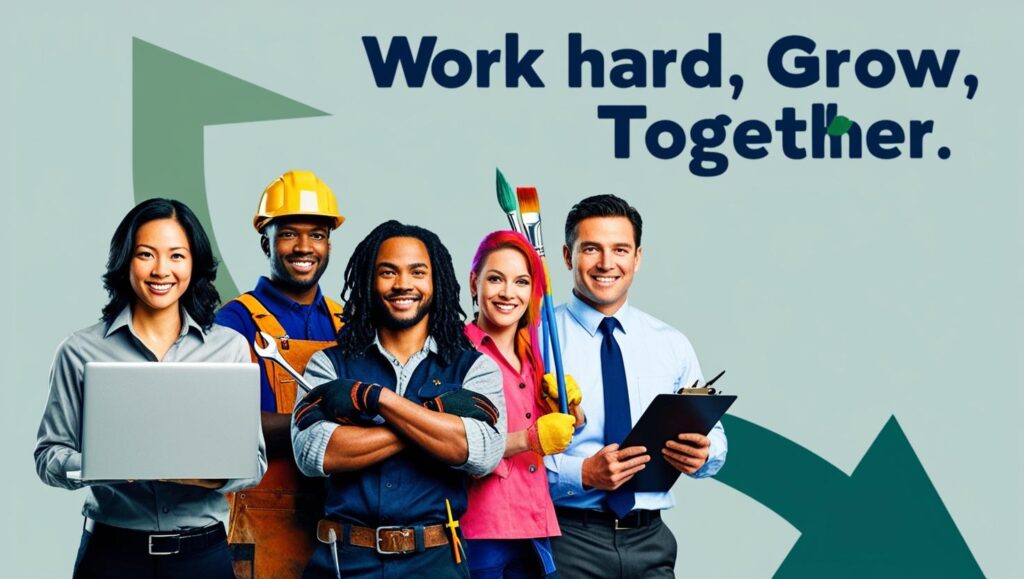
In today’s workplace, creating an environment where every individual can reach their full potential is not just a moral imperative—it’s a strategic one. Organizations thrive when they recognize and reward merit while providing equitable opportunities for growth, especially for those who haven’t had the chance to develop their skills or knowledge fully. This approach doesn’t mean treating everyone as if they have the same capacity—after all, not everyone is an Einstein or a Bach—but it does mean valuing every person’s unique contribution and encouraging them to be the best they can be. By fostering a culture of growth, merit, and mutual support, we can build workplaces where talent shines, effort is celebrated, and everyone feels empowered to contribute.
The Power of Merit: Rewarding Excellence Fairly
Merit is the cornerstone of a high-performing organization. When we reward individuals based on their skills, effort, and results, we create a culture of accountability and excellence. Recognizing merit sends a clear message: your contributions matter, and your hard work will be acknowledged. This approach drives motivation and ensures that those who deliver exceptional results—whether through innovative problem-solving, consistent execution, or creative insights—are celebrated for their achievements.
However, a merit-based system must be built on fairness. Rewarding only those who are already excelling can overlook individuals with untapped potential who, due to lack of opportunity or access, haven’t yet had the chance to shine. A truly meritocratic culture doesn’t just reward current performance; it actively invests in helping everyone develop the skills and knowledge they need to compete on an equal footing.
 Unlocking Potential: Growth Opportunities for All
Unlocking Potential: Growth Opportunities for All
Not every employee starts with the same advantages. Some may have had access to top-tier education or mentorship, while others, through no fault of their own, have faced barriers to developing their talents. Organizations have a responsibility to level the playing field by providing equitable access to growth opportunities. This doesn’t mean lowering standards or favoring superficial traits—it means recognizing that potential exists in everyone and creating pathways for individuals to grow into their best selves.
Practical steps can make this a reality:
- Tailored Training Programs: Offer workshops, online courses, or hands-on training that cater to employees at different skill levels, ensuring everyone can build the competencies needed to excel.
- Mentorship for All: Provide access to experienced mentors or subject-matter experts, so every employee—regardless of their current role or background—can learn from those with more expertise.
- Stretch Assignments: Create opportunities for employees to take on challenging projects, allowing them to showcase their potential and develop new skills in a merit-driven context.
By investing in growth, organizations not only empower individuals but also cultivate a deeper talent pool, where merit can emerge from unexpected places.
Recognizing Differences Without Reducing Value
It’s important to acknowledge that not everyone has the same capacity. Some individuals may naturally excel in analytical thinking, others in creative innovation, and others still in operational execution. These differences don’t diminish anyone’s worth—they enrich our teams. A violinist isn’t less valuable than a composer like Bach; they simply contribute in their own unique way. The key is to create a culture where every role, from the visionary to the executor, is respected, and every employee is encouraged to maximize their strengths.
This mindset shifts the focus from comparison to contribution. Instead of measuring everyone against an unattainable standard, we celebrate what each person brings to the table. An employee who excels at streamlining processes is just as vital as one who designs groundbreaking products. By valuing diverse contributions, we foster a sense of belonging that motivates everyone to give their best.
A Culture of Mutual Support: Helping Others Thrive
One of the most powerful ways to build a merit-based, growth-oriented culture is to encourage employees to support one another, regardless of position or performance level. When individuals use their skills and knowledge to help their colleagues—whether through mentoring, sharing insights, or collaborating on projects—they create a ripple effect of growth and success.
Imagine a workplace where a seasoned engineer takes time to guide a junior team member, not because it’s required, but because they believe in the value of shared growth. Or where a team member with a knack for problem-solving offers to brainstorm with a colleague struggling with a challenge. These acts of mutual support don’t just benefit individuals—they strengthen the entire organization by fostering trust, collaboration, and a shared commitment to excellence.
Leaders can nurture this culture by:
- Recognizing and rewarding employees who go out of their way to help others.
- Creating structured opportunities, like peer mentoring programs or cross-functional teams, to encourage knowledge-sharing.
- Modelling a mindset of gratitude and service, where helping others is seen as a hallmark of true success.
 Gratitude and Perspective: Being Thankful for What You Have
Gratitude and Perspective: Being Thankful for What You Have
At the heart of this approach is a spirit of gratitude. Employees who are thankful for their opportunities—whether it’s access to training, a supportive team, or a chance to contribute—are more likely to approach their work with enthusiasm and resilience. Gratitude doesn’t mean settling for less; it means recognizing the value of what you have while striving to grow and improve.
This perspective also extends to how we view others. By appreciating the diverse talents and efforts of our colleagues, we create a workplace where everyone feels valued, not for meeting an arbitrary standard, but for contributing to a shared mission. This mindset fuels a cycle of growth, where employees are motivated to develop their skills, support their peers, and take pride in their achievements.
Building a Better Future
Creating a workplace that balances merit, growth, and mutual support isn’t just about policies—it’s about a commitment to seeing the potential in every person. By rewarding excellence, providing equitable opportunities for development, and fostering a culture of gratitude and collaboration, organizations can unlock the best in their teams. Not everyone will be an Einstein or a Bach, but everyone can be the best version of themselves. And when we help each other grow, we all thrive.
Let’s build workplaces where merit shines, potential is nurtured, and every contribution counts. Together, we can create a future where everyone has the chance to be their best—and where the results speak for themselves.
Practical Takeaways
- Start Small: Begin with low-cost initiatives like peer mentoring or clear performance metrics, as seen in the manufacturing firm, to build momentum without breaking the bank.
- Listen and Adjust: Use employee feedback to refine reward systems, as the tech startup did, to avoid perceptions of unfairness -aligning with my focus on grounding solutions in stakeholder input.
- Celebrate All Roles: Recognize contributions from all positions, like the retail chain’s inclusion of stockroom staff, to boost morale and reflect my view that every job matters.
Pingback: 4 Strategies to Unlock the Hidden Potential of Your Accounting Practice/Department - Andre Du Toit